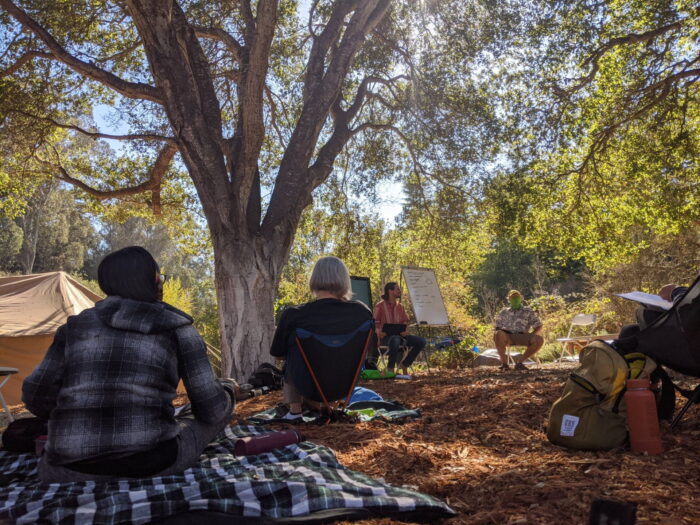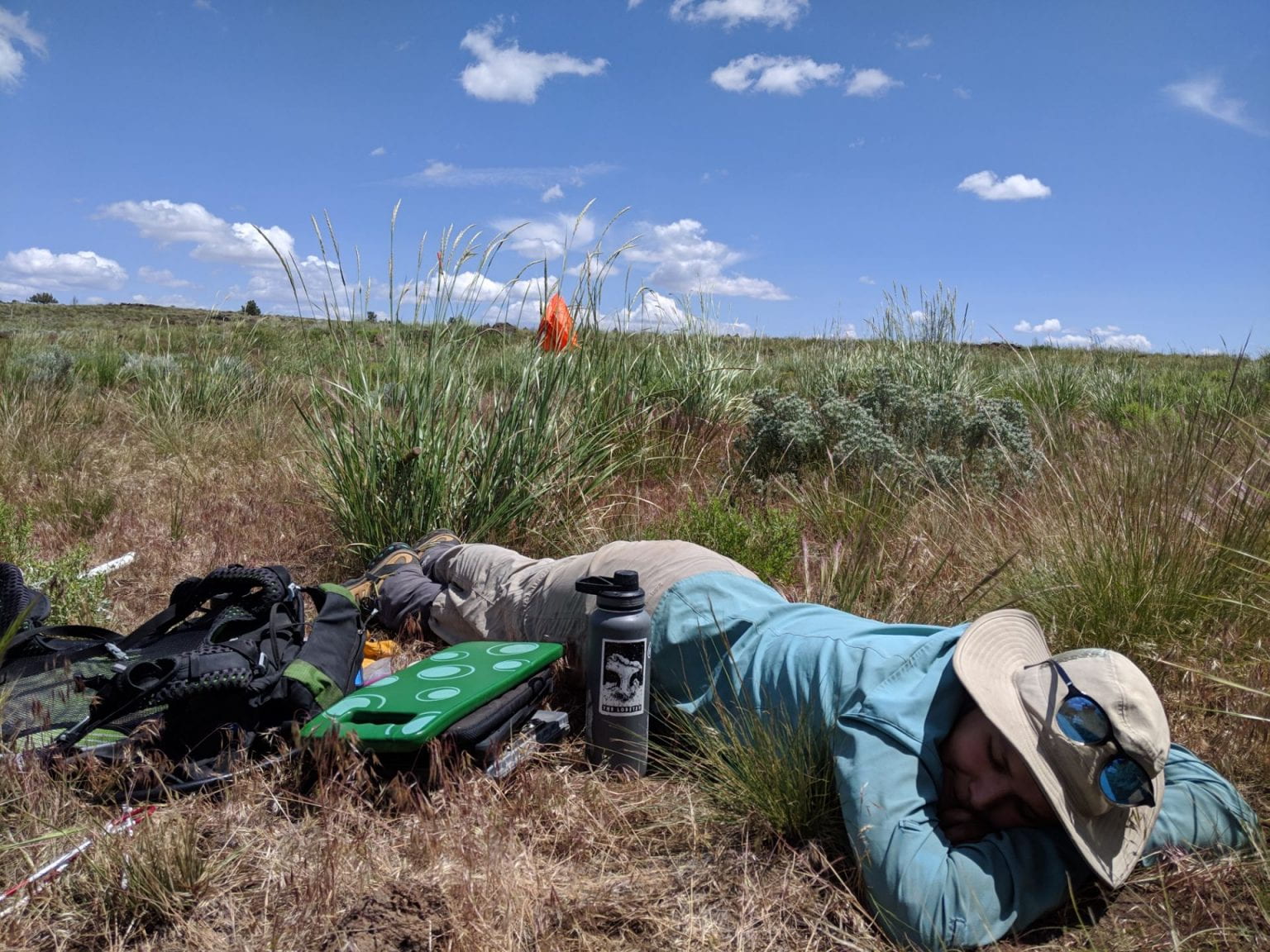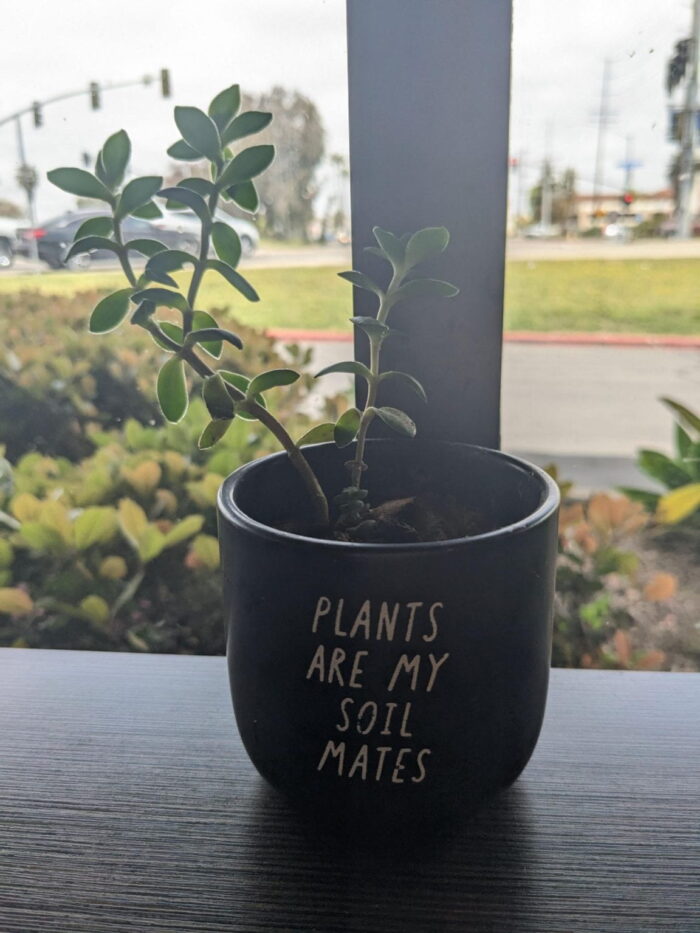Love backpacking? Start your Vocation in Conservation Today
Do you love being outside and want the ‘trail magic’ to continue even after your trip finishes?
What if you could protect and improve the outdoor spaces that enliven your spirit?
Have you considered a vocation centered around habitat restoration, conservation, or biology?
Ask yourself:
-
What are my values? What community (human and non-human) am I most passionate about serving?
-
Do I want your office to be outside or mainly inside?
-
Do you want to craft a vocation that is rooted in your values and livelihood?

A career in conservation will take you to beautiful places, like the time I worked for the National Park Service surveying post-wildfire Douglas Fir forests in Point Reyes, CA
It’s easier than it sounds. I started my journey midway through my undergraduate degree, switching from the soul-sucking field of Marketing to Environmental Studies. Book by book, I began learning about the wide world of environmentalism.
With little to no biology experience, but a lot of outdoor backpacking skills, I landed my first Biological Technician job for Natureserve, a leader in global conservation. Camping and hiking skills were vital, as we camped for eight days off-grid while surveying post-wildfire burned areas within the big Sagebrush habitat for indicators of ecosystem health. The survival of the Sagegrouse, a protected species, directly depends on the health of the entire sagebrush ecosystem. After this field season, I am hooked on scientific field jobs that get me outside and allow me to improve a degraded landscape.

Getting paid to drive an ATV deep into the backcountry of Northeastern California to find rare plants? Sign me up!
That was five years ago. Since then, I’ve worked for various organizations, including the US Forest Service, State Parks, National Park Service, environmental consulting companies, and environmental non-profits. Remember the learning never stops. Fall of 2023, I’m returning to school for a graduate degree in Ecology and couldn’t be more excited to see where this new chapter propels my livelihood next.
How to thrive in this field:
1.Field jobs can be physically and emotionally challenging, but highly rewarding

Like the time I wore a full-body Tyvek suit for a season to crawl through overgrown poison oak forests, and then had poison oak rashes for months

Habitat Restoration is physically demanding, for example, while removing this invasive plant (Melilotus indicus) from the creek, one load filled up two dumpsters, and we had ten more to go.
2. You get to see intimate parts of wild places that few people have experienced

While working for the National Park Service in Point Reyes, we surveyed wildflowers adjacent to a herd of roaming Tule Elk
3. Get ready to grow beyond your comfort zone

Sometimes field days do not go according to plan, like the time I helped survey for petroglyphs in a remote canyon of Sequoia National Monument. Our radios were lost in the rugged landscape and the 100-degree weather caused my boss to get near-death heat exhaustion. Eventually, the sun set and we hiked back in the dark. Getting back to the truck 17 hours later, we were reported as missing people to the police. Hopefully, none of your field days result in this experience, but if it does recognize it as an opportunity to grow in your abilities.
4. Learn to be open to taking twists and turns in your path
My path is not linear and has taken many twists and complete U-turns. Try out different jobs that spark your interest. For example, I’ve worked as a greenhouse propagator, geology research field assistant, landscape designer, gardener, field biologist, and habitat restoration technician.

My first job was being a Geology Research Assistant for the Sierra National Forest, which was spent crawling through Karst caves

While working for the Soil Ecology and Restoration Group (SERG), we were lucky enough to search for rare plants along the shoreline

Working in a greenhouse is so rewarding when you get to collect the seeds from the native habitat, sow them, watch them grow into mature plants over time, then outplant them for restoration
5. Community-based training programs can be profoundly transformational
My experience in certification programs was more transformational than my undergraduate degree at a university. I can not recommend enough learning from your local community because you quickly will discover like-minded peers with similar values.

The UC Master Gardener Program taught you to cultivate what you care about, which ended up being an ecological mindset and a greenthumb!

The Santa Cruz Permaculture Design Course was entirely outside with the homiest classroom under the shady canopy of an ancient Coast Live Oak tree. We learned how to create human dwellings that symbiotically integrate Earth’s life-supporting systems.

This was my most impactful class. At the end of the 6 month time period, we planted an Elderberry tree as a class and sent well wishes out into the future

UC California Naturalist Certification class had the incredible opportunity to have a field trip to Anza Borrego and a lecture given by Marc Jorgenson, an expert naturalist on Desert Bighorn Sheep

UC California Naturalist teaches you how to be a birder while at Sonny Bono Wildlife Refuge near the Salton Sea

This sculpture depicts a prehistoric animal that lived thousands of years ago in Anza Borrego, CA. Art by Ricardo Breceda

By the end of the California Chaparral Institute Naturalist Certification, everyone is one big ecological family

Class is quite entertaining when your professor, Rick Halsey, dresses up as Davey Crocket for the day

Thank you California Rapid Assessment Method (CRAM) Courses for teaching me to strengthen my relationship with water by learning to assess the condition of a wetland
Trainings I’ve completed and can recommend include the , ,, , and the
Tips for starting your career in conservation:
-
Start reaching out to friends, family, and folks in this field to learn about their journey and experience
-
Read dream job descriptions and highlight the skills you need and the ones you want to build
-
Immerse yourself in a community or organization with similar values. Then, attend a talk, workshop, or conference. I can recommend ESA, SER, and CNPS.
-
At least in the beginning, don’t confine yourself to one specialization. Take a step back and appreciate the ecosystem from all levels, including soils, geology, microorganisms, plants, animals, and climates.
-
Be open to the new people, places, and opportunities that begin to enter your life
This website contains affiliate links, which means The Trek may receive a percentage of any product or service you purchase using the links in the articles or advertisements. The buyer pays the same price as they would otherwise, and your purchase helps to support The Trek's ongoing goal to serve you quality backpacking advice and information. Thanks for your support!
To learn more, please visit the About This Site page.









